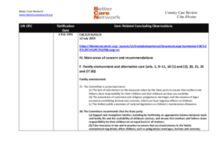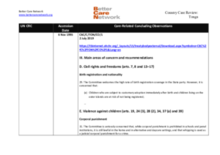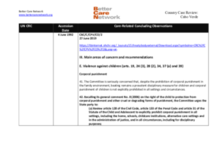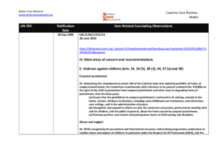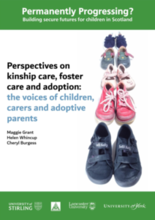Displaying 191 - 200 of 660
This country care review includes the care-related Concluding Observations adopted by the Committee on the Rights of the Child.
This study sought to understand how post‐institutionalized children interact with unfamiliar peers and the factors that predict the quality of these interactions in order to shed light on the processes contributing to the persistent, often increasing social deficits seen in post‐institutionalized children.
The aim of this article is to raise the voices of a group of birth mothers, a historically stigmatised, powerless and neglected group, with substantial experience of counselling following the loss of a child.
In this chapter of Filiation and the Protection of Parentless Children, the author shows the ways in which premodern Muslim jurists and judges (with focus on early modern Egypt) were able to circumvent the prohibition of adoption through discursive moves and practices, which helped create a family life for many parentless and non-biological children.
This country care review includes the care-related Concluding Observations adopted by the Committee on the Rights of the Child.
This country care review includes the care-related Concluding Observations adopted by the Committee on the Rights of the Child.
This country care review includes the care related Concluding Observations adopted by the Committee on the Rights of the Child and the Committee on the Rights of Persons with Disabilities.
This study aims at analyzing adoption-related feelings, which include the feelings of loss and the ensuing curiosity about the birth family and pre-adoption life.
This report has been completed as one part of the study Permanently Progressing? Building secure futures for children in Scotland which heard directly from children about their experiences.
After almost five years of detailed research and analysis, the reports of the Permanently Progressing study (phase one) were published on 20 June 2019. The study investigated decision making, permanence, progress, outcomes and belonging for a large cohort (1,836 children) of all children in Scotland who became looked after in 2012-13, when they were aged five or under.

